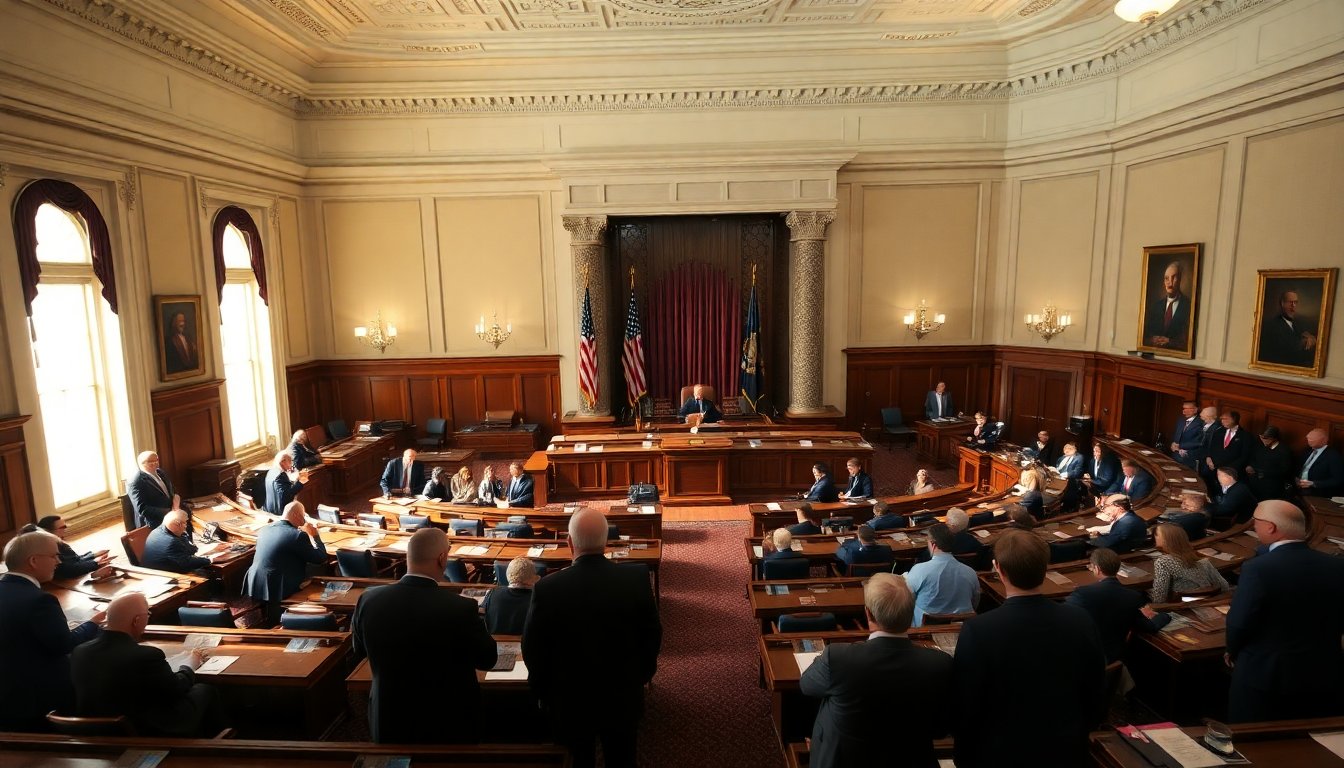Table of Contents
In a session that took many by surprise, Congress convened to confirm the election results, officially recognizing Donald J. Trump as the winner. This event represents a significant departure from the tumultuous circumstances surrounding the same process four years earlier, fostering a sense of normalcy in what is typically a highly charged atmosphere.
The certification process unfolded swiftly and without the drama that characterized past electoral results. The absence of protests and heated debates allowed for a smooth transition, which many viewed positively for the nation. Vice President Kamala Harris presided over the session, announcing Trump’s victory in an unembellished manner.
Comparison to previous election certification
Four years ago, the atmosphere during the certification of presidential election results was marked by tension and conflict. Protests, fierce disagreements among lawmakers, and widespread public unrest defined the event. In contrast, the recent session saw Congress carry out its duties with a sense of decorum and efficiency.
Previous challenges and their impact
During the certification process in 2021, an unprecedented event occurred when a mob stormed the Capitol, seeking to disrupt the proceedings. This act of violence not only resulted in heightened security measures but also led to a national reckoning regarding the fragility of democracy. The aftermath has left a lasting impression on the American political landscape.
The current session reflected a shift in this narrative. Many lawmakers, having learned from past experiences, prioritized the integrity of the process over partisan disputes. This collective decision contributed to an atmosphere more conducive to democratic norms, illustrating a commitment to moving forward in a united manner.
Reactions to the certification
As Trump’s victory was announced, reactions varied across the political spectrum. Supporters expressed satisfaction and relief, viewing the swift certification as validation of their beliefs and efforts during the campaign. Conversely, critics voiced discontent, citing concerns over the implications of Trump’s administration and its policies.
Public sentiment and future implications
The public response has been mixed, with many citizens reflecting on the implications this victory holds for the nation’s future. The calmness of this session may indicate a desire for stability after a period of significant upheaval. Some analysts suggest that it could pave the way for a more cooperative political environment, while others remain skeptical about the potential for bipartisan collaboration.
In light of these developments, examining how this certification will influence upcoming legislative agendas and political strategies is crucial. The outcome could shape the direction of both parties as they navigate the challenges and opportunities ahead.
The certification of Donald Trump’s victory stands as a significant moment in American political history, especially when contrasted with the dramatic events of the previous election cycle. This session, characterized by its lack of chaos, signals a potential turning point for Congress as it seeks to restore faith in the electoral process. As the nation moves forward, the ability of lawmakers to collaborate in a spirit of cooperation will be essential for addressing the pressing issues facing the country.
This certification is more than just a procedural step; it embodies a commitment to uphold democratic values and a collective responsibility to engage in constructive dialogue, laying the groundwork for future governance.


